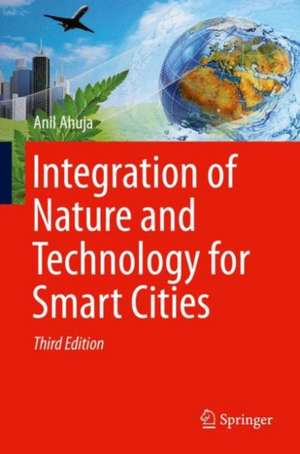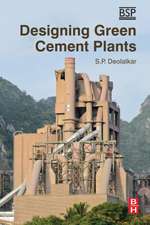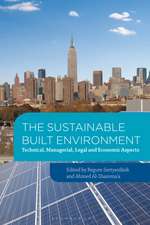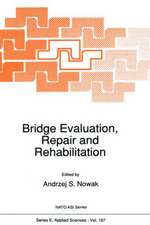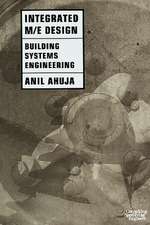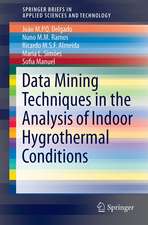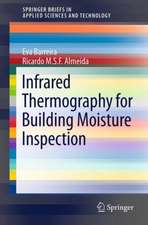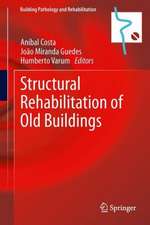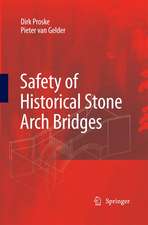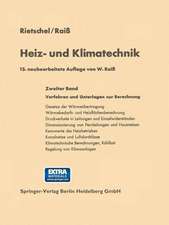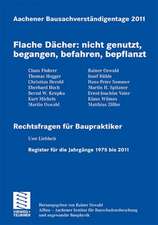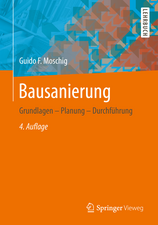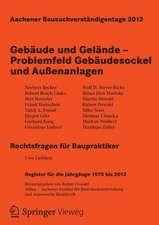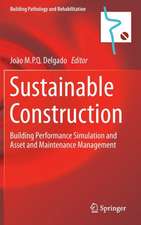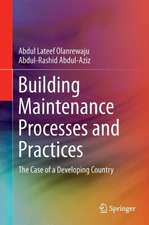Integration of Nature and Technology for Smart Cities
Autor Anil Ahujaen Limba Engleză Hardback – 30 mar 2016
| Toate formatele și edițiile | Preț | Express |
|---|---|---|
| Paperback (1) | 784.09 lei 38-44 zile | |
| Springer International Publishing – 23 apr 2018 | 784.09 lei 38-44 zile | |
| Hardback (1) | 798.36 lei 38-44 zile | |
| Springer International Publishing – 30 mar 2016 | 798.36 lei 38-44 zile |
Preț: 798.36 lei
Preț vechi: 1036.83 lei
-23% Nou
Puncte Express: 1198
Preț estimativ în valută:
152.76€ • 159.93$ • 126.40£
152.76€ • 159.93$ • 126.40£
Carte tipărită la comandă
Livrare economică 01-07 aprilie
Preluare comenzi: 021 569.72.76
Specificații
ISBN-13: 9783319257136
ISBN-10: 3319257137
Pagini: 404
Ilustrații: XXIV, 404 p. 180 illus., 99 illus. in color.
Dimensiuni: 155 x 235 x 22 mm
Greutate: 0 kg
Ediția:3rd ed. 2016
Editura: Springer International Publishing
Colecția Springer
Locul publicării:Cham, Switzerland
ISBN-10: 3319257137
Pagini: 404
Ilustrații: XXIV, 404 p. 180 illus., 99 illus. in color.
Dimensiuni: 155 x 235 x 22 mm
Greutate: 0 kg
Ediția:3rd ed. 2016
Editura: Springer International Publishing
Colecția Springer
Locul publicării:Cham, Switzerland
Public țintă
Professional/practitionerCuprins
1 Smart Trends and Paradigm Shift.- 2 Building Systems Engineering.- 3 Basic Smart Building Systems.- 4 Air, Water, Power and Internet Quality.- 5 Acoustics, Vibrations and Integrated Buildings Systems.- 6 Lightning, Electrostatic Discharge, and Buildings.- 7 Electromagnetic Waves, Noise, and Systems Susceptibility.- 8 From Microelectronic Technology to Information Technology.- 9 Energy Storage.- 10 Integrated Building Systems Engineering & Automation.- 11 Atmospheric Radiation Soup and Buildings and Internet of Things.- 12 Reliability Requirements, Risk Management, and Associated Building.- 13 Integration of Mother Nature into Smart Buildings.- 14 Taking Advantage of Natural Elements Surrounding the Building.- 15 Reduce, Reuse, Recycle.- 16 The Human Body and Building Synchronization.- 17 Understanding the Occupant’s Behavior.- 18 Vision of Cities: From the Green City to the Smart City.- 19 The Smart Building in the Smart City.- 20 The journey of water – from the smart building to the smart city.- 21 Integrated Affordable Mobility Solutions in a Smart Neighborhood.- 22 International Rating Systems for Smart Buildings and Smart Cities.
Notă biografică
Mr. Ahuja is President of CCJM, a multi-disciplinary engineering firm providing Smart City and Smart Building designs, including urban development strategies, major water and wastewater system engineering, and bridge and highway design and rehabilitation.
Anil has been active in the sustainability field for many years. He joined the Board of Directors of USGBC-IL in 2015. Additionally, Anil is a Board Member of the Chicagoland Chamber of Commerce and currently serves as Chair for the Environmental and Sustainability Committee. As chair of IMSA’s Energy Center, Anil is co-developing innovation prototypes that transform teaching and learning in science, technology, engineering and mathematics (STEM).
Anil has over 30 years of experience in sustainable Building Systems Design, Design Management, Construction Management, Commissioning and Operations and Maintenance. Prior to joining CCJM, Anil served as Vice President/General Manager of the Integrated Building Services Group with a focus on the 2020 Energy Vision Program at Exelon Corporation (the largest utility in the United States), ComEd’s parent company. Other past experience includes Chief Engineer of Building Systems at The Austin Company, an international design/build company and Chief Engineer on board merchant ships.
Anil has written several articles for Pure Power Magazine and Building Design and Construction. He is a regular contributor and was featured three times on the cover of Consulting Specifying Engineer (July 2004, February, 2001 and September, 1994 issues). Anil is also recently featured in the anniversary issue of i4Design Magazine in its “wall of fame” as one of the Midwest’s established stars.
His sustainable design work has led to participation on the Chicago Center for Green Technology Engineering Advisory Committee. Integration of building systems is a continuing focus of Anil’s as evidenced with his involvement with ASHRAE’s Technical Committee on Integrated Design.
Anil has been active in the sustainability field for many years. He joined the Board of Directors of USGBC-IL in 2015. Additionally, Anil is a Board Member of the Chicagoland Chamber of Commerce and currently serves as Chair for the Environmental and Sustainability Committee. As chair of IMSA’s Energy Center, Anil is co-developing innovation prototypes that transform teaching and learning in science, technology, engineering and mathematics (STEM).
Anil has over 30 years of experience in sustainable Building Systems Design, Design Management, Construction Management, Commissioning and Operations and Maintenance. Prior to joining CCJM, Anil served as Vice President/General Manager of the Integrated Building Services Group with a focus on the 2020 Energy Vision Program at Exelon Corporation (the largest utility in the United States), ComEd’s parent company. Other past experience includes Chief Engineer of Building Systems at The Austin Company, an international design/build company and Chief Engineer on board merchant ships.
Anil has written several articles for Pure Power Magazine and Building Design and Construction. He is a regular contributor and was featured three times on the cover of Consulting Specifying Engineer (July 2004, February, 2001 and September, 1994 issues). Anil is also recently featured in the anniversary issue of i4Design Magazine in its “wall of fame” as one of the Midwest’s established stars.
His sustainable design work has led to participation on the Chicago Center for Green Technology Engineering Advisory Committee. Integration of building systems is a continuing focus of Anil’s as evidenced with his involvement with ASHRAE’s Technical Committee on Integrated Design.
Textul de pe ultima copertă
This book is a resumption of the work “Integrated M/E Design: Building Systems Engineering” published by Anil Ahuja in 1997. Together with an international group of authors from the engineering, urban planning, and architecture fields, Mr. Ahuja discussed new trends and paradigms in the smart buildings and smart city sectors and extended the topic of the previous publication from the building to the entire city. A smart, sustainable building is not just about the building itself. There are things happening in the inside of the building and on the outside. A smart building connects the inside with the outside, provides efficiencies on both sides, synchronizes the outside infrastructure with its inside systems, and integrates nature and its occupants in its design. A smart building doesn’t just provide technology solutions. It is about constant exchange between the inside and the outside of the building, the contribution of the building to the quality of the entire neighborhood and the rest of the city, how the smart building can connect people in a sharing community, and how technology can be the key to make it happen.
Caracteristici
A unique approach to green, healthy and innovative building design and the sustainable interconnection between buildings and their surroundings
Explains the interconnections between nature and technology in building design and their impact on the environment, health, and occupants behavior
Illustrates innovative, smart technologies for buildings and cities and how they can be even smarter with the integration of nature
Incorporates knowledge derived from the latest research on smart applications into engineering building systems and the entire urban fabric
Includes supplementary material: sn.pub/extras
Explains the interconnections between nature and technology in building design and their impact on the environment, health, and occupants behavior
Illustrates innovative, smart technologies for buildings and cities and how they can be even smarter with the integration of nature
Incorporates knowledge derived from the latest research on smart applications into engineering building systems and the entire urban fabric
Includes supplementary material: sn.pub/extras
